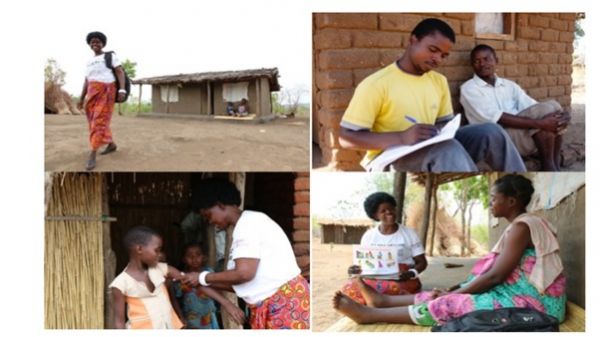Task shifting as a process of transferring responsibility to healthcare personnel with fewer competency skills in situations of limited health personnel in the quest for universal health coverage.
Hello again nurses, this is nurses’ watchwoman, I am following up on my last article on arise Kenyan nurses. No sooner had I released the article than I received The Kenya community health policy 2020-2030. Having shared with my close circle of friends about task shifting coming, some saw me as pessimist. Having seen community health workers in Rwanda manage many conditions and the Universal Health Coverage wave across the globe, I know it was time to be effected in Kenya. Yes, it is here with us through the said policy. So, let me breakdown task shifting. Task shifting as a process of transferring responsibility to healthcare personnel with fewer competency skills in situations of limited health personnel in the quest for universal health coverage. This approach was employed in the management of HIV. Since then, it has been adopted in low resource settings to bridge the gap of understaffing in healthcare settings. What does this mean in Kenyan context?
Community Health workers famously recognized as CHEW or CHVs are going to deliver key health messages, guide community on health improvement and disease prevention ,treat common ailments and minor injuries, diagnose, treat, manage or refer patients and clients, manage common childhood illnesses such as diarrhoea, malaria, malnutrition, and pneumonia, and house visits. Does this ring a bell to you as a nurse? The policy continues to stipulate services that shall be delivered which include providing reproductive health and gender-based services, mental health, neonatal care, child health and immunization, Non-communicable services, communicable diseases, chronic illness, basic curative services among others. We have been yelling about nurse aids but here comes officially endorsed cadre who can perform duties that is in our scope. And do you know who will coordinate this? Your guess is as good as mine, public health officers. You might say but we are Kenya Registered community Nurses. Yes, we are but let us dig deeper.
Task shifting in my view is a temporary solution to the poor and concerns of quality care marked with poor remuneration and working conditions. But understanding my country, this strategy can be in place for long period as the financiers and implementers want. Task shifting to CHVs is a tactic by the Kenyan government not to address human resource issues. What we anticipate is professional protectionism where nurses will arise because of the feeling that their schooling time is not just that anyone can do a nurses’ job. Did a driver, watchman or usher take your vitals during Covid 19? They can use this situation to justify. PHOs, my friends as I have minor in public health, will surely defend and identify with this niche. As usual, there shall be quacking, when policy is already in place.
From health economic perspective, it is cost-effective to use CHVs to implement UHC agenda. This is the new backbone. It takes approximately 3 months to train CHVs at subcounty level which requires minimal finances and training shall happen in their setting. Their value proposition is that they are well acquainted to community members and are cheap as they are compensated by stipends. One nurse salary at lowest level currently can remunerate 3 CHVs. I bet they will never strike over promotion, salaries, designation and will be prompt in reporting. You might argue that, but this is unskilled labour, yes, they are but ask yourself who has interest of quality healthcare at heart? I understand your feelings, but this one we must rethink how to navigate health landscape. Lets set aside emotions and strategize. We are everywhere but nowhere. Fasten your safety belt, we are about to experience turbulence.
https://www.health.go.ke/wp-content/uploads/2020/07/Kenya-Community-Health-Policy-Signed.pdf

